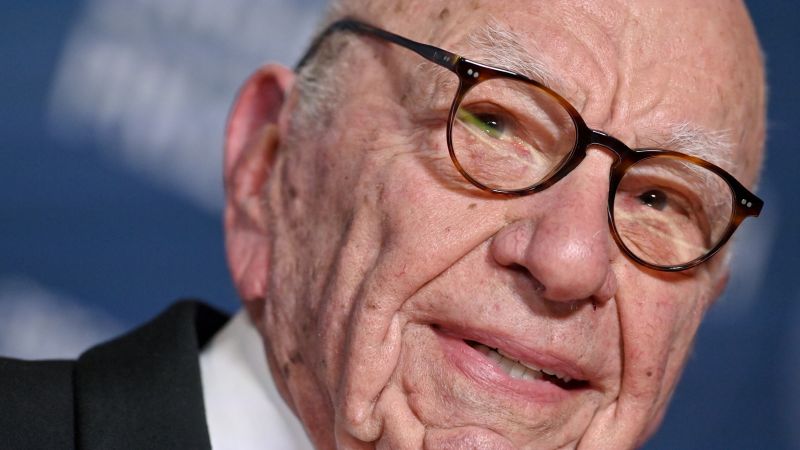In a contentious legal battle centering around defamatory claims, the technology firm Smartmatic has leveled serious accusations against Fox News, alleging that the network engaged in the willful destruction of evidence pertinent to its 2020 election coverage. These claims come on the heels of ongoing proceedings which already cast a pall over the integrity of Fox’s reporting during a tumultuous political period marked by allegations of electoral fraud. The assertions made in recent filings indicate a significant escalation in the litigation that has drawn considerable media attention.
Smartmatic’s legal team outlined in its court filings that senior executives at Fox News, including Rupert Murdoch and his son Lachlan Murdoch, actively deleted text messages in violation of their duty to preserve evidence. The firm asserted that such actions were not mere accidents but rather a calculated effort to sanitize the electronic communications that could potentially show knowledge of misleading information disseminated during the election season. Rupert Murdoch served as chairman of Fox Corporation throughout the 2020 election period, while Lachlan Murdoch was the CEO. The implications of these allegations are profound, raising questions about corporate ethics and accountability at one of America’s most watched networks.
Fox News has responded vigorously to Smartmatic’s incriminations, characterizing them as a “desperate attempt to distract” from a favorable evidentiary ruling made earlier for the network. A spokesperson for Fox denounced the claims, stating that Smartmatic’s allegations were a weak revival of legal issues purportedly resolved two years prior. The spokesperson claimed that these assertions lack relevance to the substantive merits of Smartmatic’s case, which, according to them, has steadily deteriorated at each phase in the ongoing litigation.
The crux of Smartmatic’s assertions lies in the revelation that the deleted messages allegedly stemmed from November and December 2020. During this period, a number of Fox News hosts promoted unsubstantiated conspiracy theories suggesting that Smartmatic’s election machines had played a role in rigging the presidential election against then-President Donald Trump. In related evidence from another case, it has emerged that even prominent Fox News executives and on-air talents did not believe the narratives of significant electoral fraud, which they were nonetheless broadcasting, demonstrating an apparent disconnect between public messaging and private knowledge.
Smartmatic’s legal papers claim that the erasure of these texts was strategic, aimed at obscuring the truth about what key figures at Fox knew regarding the allegations of fraud being disseminated. The assertion emphasizes that while Fox News publicly championed theories of election fraud, behind closed doors, the company actively worked to prevent incriminating communications from surfacing.
Currently, the lawsuit does not have a trial date established in New York State Court, although Smartmatic has requested that the judge inform the jury about the alleged destruction of evidence, effectively suggesting that the jury should infer that such evidence would have been detrimental to Fox’s defense. The stakes are high as both parties brace for what could be a prolonged and reputationally fraught conflict.
In addition to the current allegations, the legal skirmishes are complicated by a range of other factors including claims from both sides regarding the financial viability of Smartmatic and accusations of misconduct concerning evidence handling. Fox’s representatives argue that Smartmatic’s claims for billions in damages lack foundation, asserting that the company’s reputation suffered due to its own previous controversies, which include allegations related to foreign dealings and bribery.
Amid these tumultuous proceedings, an appellate court has recently granted Fox access to documents tied to a separate federal bribery indictment against Smartmatic executives, which Fox believes could bolster its defense in the defamation lawsuit. As this high-profile case proceeds through the legal system, it intertwines issues of media credibility, corporate governance, and the broader implications for freedom of the press under the First Amendment.
In summary, the unfolding legal tensions highlight numerous facets of concern, from the ethical implications of media reporting and corporate responsibility to the precarious balance of power within the media landscape as it interacts with complex political realities. As both sides continue to prepare for potential settlement discussions or trial, the ramifications of this case could redefine not only Smartmatic’s future but also set a significant precedent for media conduct in an age increasingly defined by misinformation.



